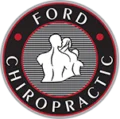Choosing Heart-Healthy Foods
Include Fruits and Vegetables
Incorporating a variety of fruits and vegetables into your diet is a cornerstone of heart-healthy eating. These nutrient powerhouses are essential for maintaining a well-functioning cardiovascular system. They are not only rich in vitamins and minerals but also packed with fiber and antioxidants, which help to reduce the risk of heart disease.
- Leafy greens such as kale, spinach, and Swiss chard are particularly beneficial due to their high fiber content and abundance of vitamins.
- Avocados are another excellent choice, known for their ability to lower bad cholesterol levels and maintain healthy blood pressure.
A heart-healthy diet isn’t just about avoiding certain foods; it’s about actively incorporating nourishing choices into your diet.
Remember to be mindful of portion sizes and to balance these plant-based foods with other heart-healthy nutrients for a well-rounded approach to your diet.
Opt for Whole Grains
Whole grains are a cornerstone of heart-healthy eating. Incorporating whole grains like brown rice, quinoa, and oats into your diet is essential for maintaining good heart health. These grains are rich in soluble fiber, which plays a crucial role in reducing cholesterol levels by binding to cholesterol particles and aiding in their removal from the body.
Soluble fiber isn’t the only benefit of whole grains; they are also packed with nutrients such as iron, folate, and various antioxidants. These components contribute to the reduction of chronic diseases and support overall well-being. For a heart-healthy boost, consider starting your day with a bowl of oatmeal or finding creative ways to include whole grains in your meals.
Whole grains have been linked to a lower risk of heart disease and can be a delicious part of any meal. Whether you’re enjoying a warm quinoa salad or a slice of whole-grain bread, these foods are versatile and beneficial.
Here’s a simple list of whole grains to incorporate into your diet:
- Brown rice
- Quinoa
- Oats
- Whole-grain bread
- Whole-grain tortillas
Remember, a small change like swapping out white rice for brown can make a significant difference in your heart health.
Limit Saturated and Trans Fats
Reducing your intake of saturated and trans fats is crucial for maintaining a healthy heart. These fats can lead to increased cholesterol levels and the buildup of plaque in your arteries, heightening the risk of heart disease. Focus on minimizing foods high in these fats, such as fatty cuts of meat, full-fat dairy products, and fried foods.
Instead, prioritize heart-healthy alternatives:
- Choose lean proteins like skinless poultry, fish, and legumes.
- Incorporate healthy fats found in avocados, nuts, and olive oil.
- Be vigilant about processed foods, which often contain hidden trans fats.
Remember, small changes in your diet can lead to significant improvements in your heart health. Opting for healthier fats and proteins not only supports your cardiovascular system but also contributes to overall well-being.
Incorporating Omega-3 Fatty Acids
Sources of Omega-3s
Omega-3 fatty acids are crucial for maintaining heart health, and they come in various forms. Alpha-linolenic acid (ALA) is a type of omega-3 found predominantly in plant sources. Flaxseeds are particularly rich in ALA, making them an excellent choice for those seeking heart-healthy nutrients from non-animal products.
Fatty fish such as salmon, mackerel, and sardines are famously known for their high omega-3 content. Including these fish in your diet can help reduce inflammation and promote overall heart health. For vegetarians or those who prefer plant-based sources, chia seeds, walnuts, and flaxseeds are superb alternatives.
Omega-3s have been associated with a lower risk of ischemic heart disease and can aid in preventing cholesterol from being deposited in the heart’s blood vessels.
It’s important to incorporate a variety of these omega-3 rich foods into your meals to ensure a balanced intake of these essential fatty acids. Here’s a list of some top sources:
- Flaxseeds (ALA)
- Chia seeds (ALA)
- Walnuts (ALA)
- Salmon (EPA & DHA)
- Mackerel (EPA & DHA)
- Sardines (EPA & DHA)
Benefits for Heart Health
The inclusion of omega-3 fatty acids in your diet is not just beneficial; it’s essential for maintaining a healthy heart. Regular consumption of omega-3s may reduce your odds of cardiovascular disease by targeting the lipids in your bloodstream. This includes a notable decrease in triglycerides and a potential reduction in cholesterol levels.
Omega-3 fatty acids are also linked to improved endothelial function, which is crucial for blood vessel health. By enhancing the elasticity of the blood vessels, omega-3s help to regulate blood pressure and prevent clot-related issues.
Embracing a diet rich in omega-3s supports overall cardiovascular health and can be a key factor in preventing heart-related complications.
To maximize the benefits for heart health, consider these points:
- Integrate omega-3-rich foods like fatty fish into your meals regularly.
- If you have dietary restrictions, explore high-quality omega-3 supplements.
- Pair omega-3 intake with a balanced diet and regular exercise for optimal heart health.
Balanced Diet for Heart Health
Variety of Nutrient-Dense Foods
Embracing a variety of nutrient-dense foods is essential for maintaining a heart-healthy diet. Incorporate a wide range of fruits, vegetables, whole grains, and lean proteins to ensure you’re getting a spectrum of vitamins, minerals, and other health-promoting compounds.
Legumes and nuts, along with fish and seafood, provide healthy sources of protein and are pivotal in a balanced diet. Fat-free or low-fat dairy and lean cuts of unprocessed meat can also contribute to your nutritional needs without overloading on saturated fats.
To optimize heart health, focus on integrating foods that offer the highest nutritional value per calorie. This means choosing options that are rich in fiber, omega-3 fatty acids, and antioxidants.
Remember, it’s not just about the individual foods, but the overall pattern of your diet that supports heart health. Strive for a colorful plate at every meal, signifying a diverse intake of nutrients.
Healthy Fats and Lean Proteins
In the pursuit of heart health, it’s crucial to focus on the quality of fats and proteins in your diet. Opt for healthy fats found in foods like avocados, nuts, and olive oil, which can help to maintain good cholesterol levels. Lean proteins are equally important, as they provide essential amino acids without excess saturated fat.
Lean proteins such as skinless poultry, fish, and legumes are excellent choices for a heart-healthy diet. They offer the necessary nutrients without the burden of unhealthy fats. Here’s a list of lean proteins to include in your meals:
- White-fleshed fish
- Plain Greek yogurt
- Beans, peas, and lentils
- Skinless white poultry meat
- Low fat cottage cheese
- Tofu
- Lean beef
Emphasizing these foods in your diet can contribute to better heart health and overall well-being. Remember to balance these proteins with a variety of colorful fruits and vegetables, whole grains, and healthy fats for a comprehensive approach to heart health.
Specific Foods for Heart Health
Fatty Fish and Omega-3s
In the quest for a heart-healthy diet, fatty fish stand out as a superior source of omega-3 fatty acids, which are essential for maintaining cardiovascular health. Incorporating fatty fish like salmon, mackerel, and sardines into your meals at least twice a week can make a significant difference.
Omega-3s, particularly EPA and DHA, are known for their role in reducing inflammation, lowering blood pressure, and decreasing the risk of blood clots. While these fats are found in both animal and plant sources, oily fish are the best source of EPA and DHA omega-3 fats.
For vegetarians or those who prefer plant-based sources, options such as flaxseeds, chia seeds, and walnuts are rich in alpha-linolenic acid (ALA), another type of omega-3 that benefits heart health. It’s important to note that while ALA is beneficial, the conversion rate to EPA and DHA in the body is limited, making direct sources from fish more potent.
A balanced intake of omega-3s can contribute to a lower risk of ischemic heart disease and help prevent cholesterol from being deposited in the heart’s blood vessels.
Remember, the key to heart health is not just about adding omega-3-rich foods to your diet, but also about limiting intake of saturated and trans fats, which can contribute to arterial plaque buildup.
Berries and Antioxidants
Berries are not just delicious; they are also a treasure trove of health benefits, particularly for the heart. Blueberries, for instance, are celebrated for their high levels of antioxidants, which combat oxidative stress and inflammation—two enemies of cardiovascular health. A single serving of blueberries can deliver a substantial 24 percent of the daily recommended intake of Vitamin K, essential for blood clotting and bone health.
Incorporating a variety of berries into your diet, such as strawberries, raspberries, and blueberries, can be a delightful way to enhance your intake of these potent phytochemicals. They are versatile and can be added to salads, blended into smoothies, or enjoyed as a fresh snack. Here’s a simple way to include them in your daily routine:
- Start your day with a berry-rich breakfast, like oatmeal or yogurt topped with a mix of berries.
- Snack on a handful of mixed berries for a midday antioxidant boost.
- Add berries to your salads for a sweet and nutritious twist.
Berries are not only a powerhouse of nutrition but also provide a burst of flavor that can brighten up any meal. Make them a regular part of your diet to support your heart health and overall well-being.
Superfoods for Heart Health
Fatty Fish (Salmon, Mackerel)
At the heart of a heart-healthy diet, fatty fish like salmon and mackerel are standout superfoods. These fish are abundant in omega-3 fatty acids, which are essential for reducing inflammation and supporting cardiovascular health. Including these in your diet at least twice a week can lead to lower blood pressure and a decreased risk of blood clots.
To effectively incorporate fatty fish into your diet, consider the following tips:
- Grill or bake salmon with a sprinkle of herbs for a flavorful meal.
- Add mackerel to salads for a protein boost.
- Use fish oil supplements if you’re not a fan of eating fish.
Emphasizing the importance of omega-3s, fatty fish should be a regular part of your meal planning for a nourishing cardiovascular system.
Remember, while aiming for two servings per week, it’s also crucial to balance your diet with other nutrient-dense foods to ensure comprehensive heart health.
Berries and Fiber
Berries are not only delicious but also a powerhouse of nutrition, especially when it comes to fiber and antioxidants. Blueberries, strawberries, and raspberries stand out for their health benefits. A single serving of blueberries, for instance, can provide a significant amount of Vitamin K, essential for blood clotting and bone health.
Incorporating berries into your diet can be both easy and enjoyable. They are versatile and can be added to salads, yogurts, or enjoyed on their own. Here’s a simple way to include them in your daily routine:
- Start your day with a berry-rich smoothie.
- Snack on a handful of mixed berries mid-morning or afternoon.
- Toss them into a salad for a refreshing lunch.
- Mix them into whole-grain cereals or oatmeal for breakfast.
Berries’ antioxidant-rich phytochemicals help combat oxidative stress and inflammation, which are key factors in heart disease prevention. Regular consumption of these small but mighty fruits can contribute to a healthier heart and overall well-being.
Whole Grains and Soluble Fiber
Incorporating whole grains into your diet is a cornerstone of heart health. Oats and whole grains like brown rice and quinoa are not only versatile but also excellent sources of soluble fiber. This type of fiber is beneficial for the heart as it helps reduce cholesterol levels by binding to cholesterol particles and escorting them out of the body. A simple way to start reaping these benefits is by beginning your day with a bowl of oatmeal or mixing whole grains into your meals.
Flaxseed is another superfood that boasts a high content of soluble fiber. When combined with water, flaxseed forms a gel-like substance that slows down digestion, which can help regulate blood sugar levels and lower cholesterol. Additionally, flaxseed is a good source of high-quality plant protein and can be easily added to your diet by sprinkling it over salads or blending it into smoothies.
Regular consumption of foods high in soluble fiber can lead to improved digestive health, keeping you full and supporting regular bowel movements.
Here are some heart-healthy foods high in soluble fiber:
- Oats
- Brown rice
- Quinoa
- Flaxseeds
- Chia seeds
- Almonds
- Walnuts
Including these foods in your diet can help you feel fuller for longer, stabilize blood sugar levels, and reduce your risk of heart disease.
Frequently Asked Questions
What are some heart-healthy foods to include in my diet?
Include fruits, vegetables, whole grains, lean proteins, and healthy fats like avocados, nuts, and olive oil in your diet to support heart health and reduce the risk of heart disease.
How can omega-3 fatty acids benefit heart health?
Omega-3 fatty acids help reduce inflammation, lower blood pressure, decrease the risk of blood clots, and support overall heart function. Sources include fatty fish, walnuts, chia seeds, and flaxseeds.
Why is it important to limit saturated and trans fats in the diet?
Limiting saturated and trans fats is crucial as they can raise cholesterol levels, contribute to plaque buildup in the arteries, and increase the risk of heart disease.
What are some specific foods that can help lower the risk of heart attacks?
Fatty fish rich in omega-3s, berries packed with antioxidants, whole grains high in fiber, and foods like avocados, nuts, and seeds are beneficial for heart health and can help lower the risk of heart attacks.
How can I incorporate more heart-healthy fats into my diet?
Incorporate foods like avocados, nuts, seeds, and olive oil into your meals. Add avocado to salads, snack on nuts, and use olive oil for cooking to increase intake of heart-healthy fats.
What are some superfoods that are beneficial for heart health?
Superfoods like fatty fish (salmon, mackerel), berries rich in antioxidants and fiber, and whole grains high in soluble fiber are excellent choices for supporting heart health and reducing the risk of heart disease.






